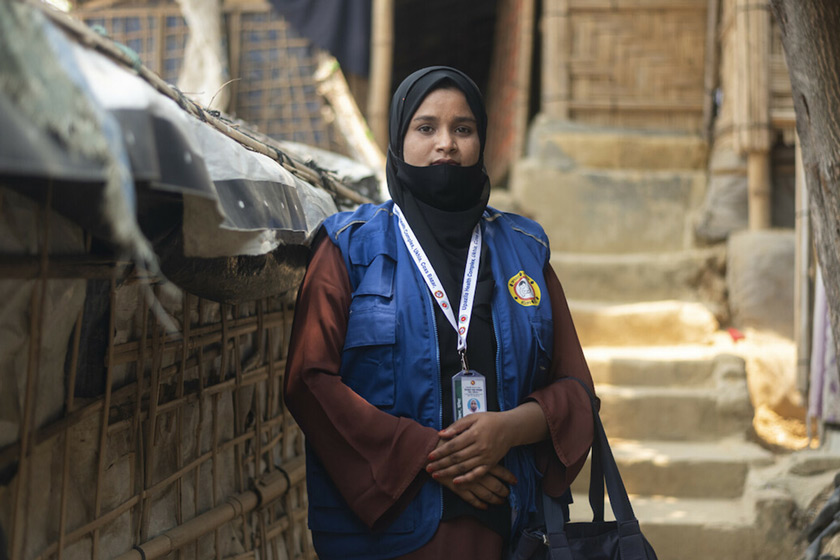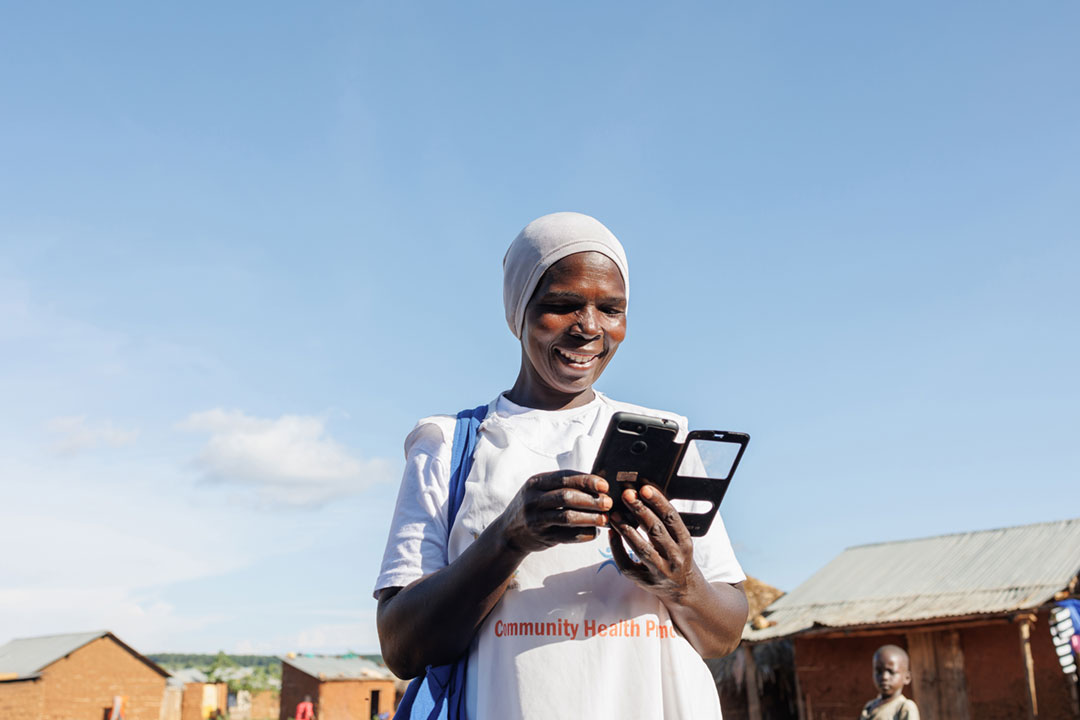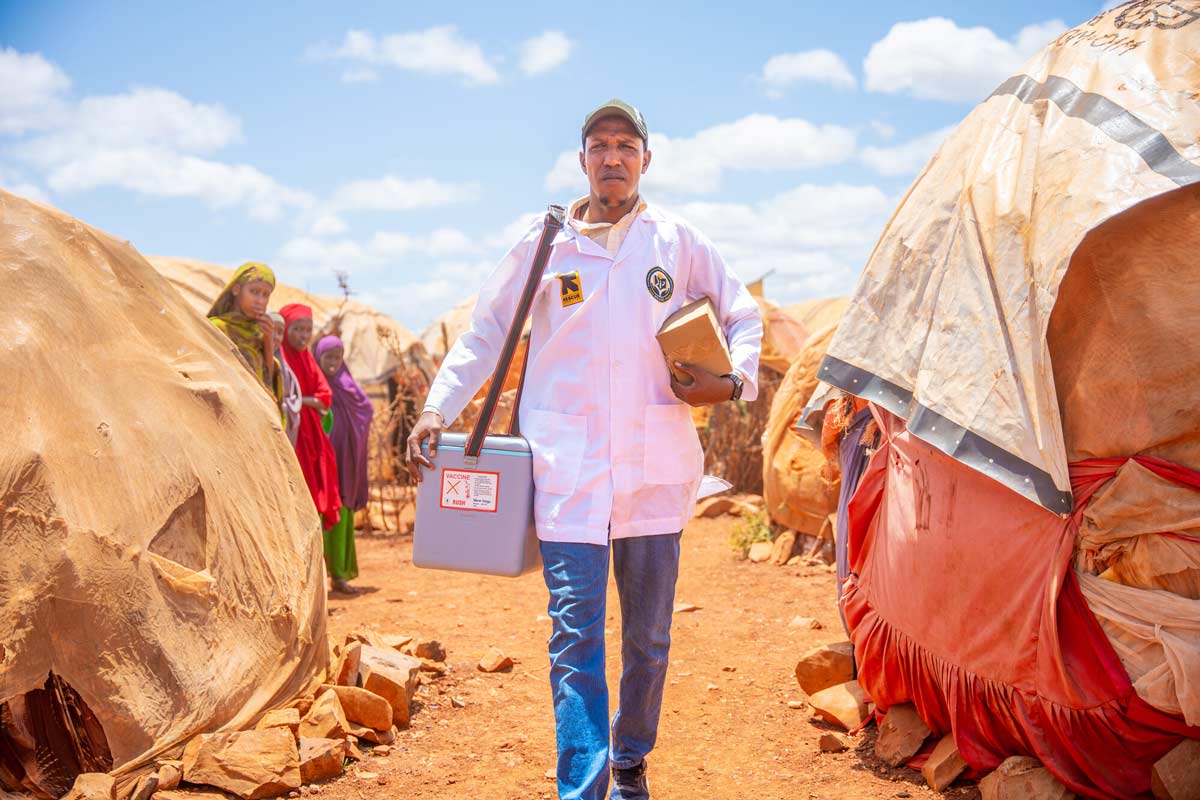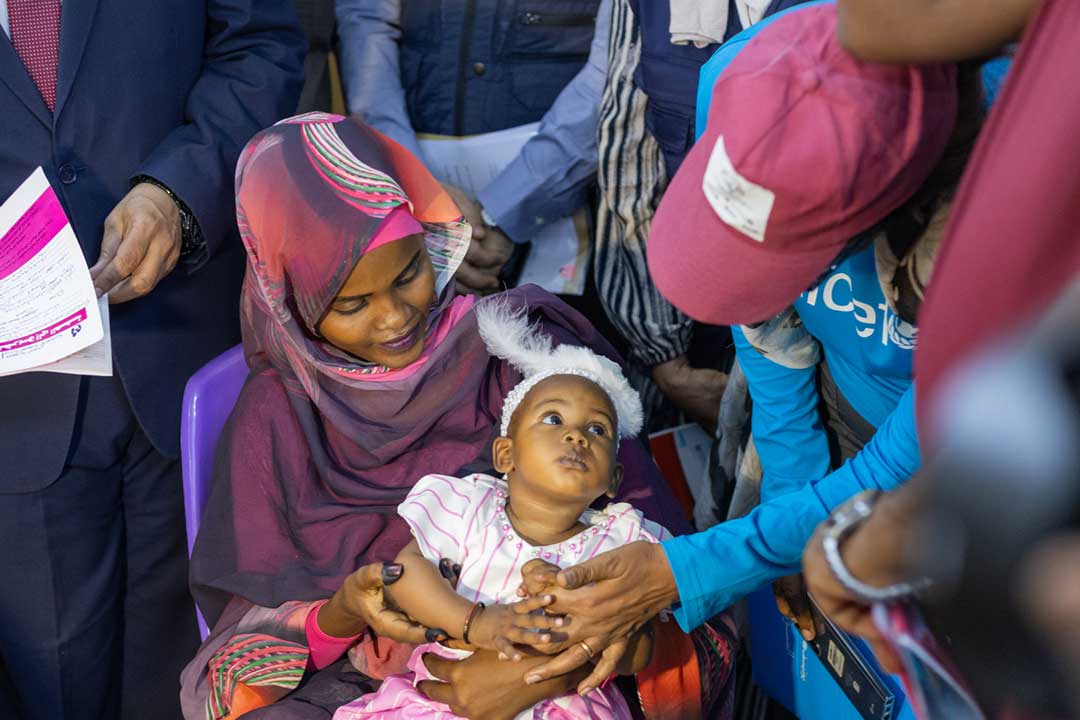Parasites in your pelvis: breaking the silence on female genital schistosomiasis
Brigitte Meugang is a nurse in the Centre Médical d’Arrondissement de Nkomo, Cameroon, and a leader in the Movement for Immunization Agenda 2030 (IA2030). Having joined a peer learning programme on female genital schistosomiasis (FGS), a little known but highly debilitating neglected tropical disease (NTD), she realised that it was the cause of a family member’s chronic illness – and that a simple drug treatment rather than a costly and unnecessary hysterectomy was the best treatment.
- 22 May 2024
- 5 min read
- by Ian Jones , Charlotte Mbuh
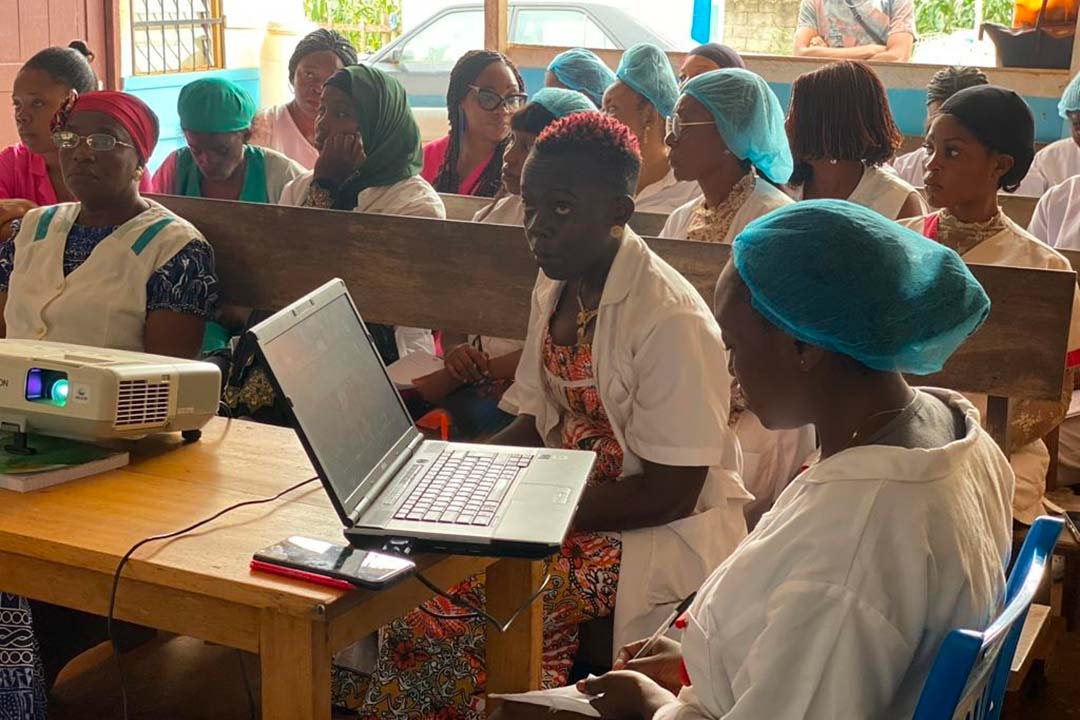
Members of the Movement for Immunization Agenda 2030 (IA2030) obviously work mainly on immunisation and prevention of vaccine-preventable disease. However, they typically also take a keen interest in the wider health of their communities, and immunisation is just one of the services offered at primary health care facilities. Furthermore, immunisation services typically reach more people than any other health service, so there is much interest in integration of services to expand access, and also to deliver efficiencies.
Integration often focuses on nutritional interventions or deworming treatments, or bundled antenatal care. But there may also be other opportunities to combine services, for example in the area of neglected tropical diseases (NTDs). These are a group of about 20 parasitic and other infections affecting more than a billion people, mostly in the Global South. They cause thousands of deaths a year, but also substantial illness, disrupting the growth and development of hundreds of millions of children.
Schistosomes, parasitic flatworms, are the world's most common parasite, likely affecting well over 200 million people. They have a complex life-cycle, spending part of their lives multiplying within aquatic snails. People become infected when they come into contact with water sources containing larvae released by schistosome-carrying snails.
Infection can cause a wide range of short- and long-term symptoms, typically the result of damaging immune responses to worms or their eggs in different tissues within the body, such as the gastrointestinal tract, liver or nervous system.
Less commonly, worms can lodge in blood vessels around the bladder and urogenital system. This can lead to painful and debilitating symptoms, including blood in urine, pain and, over longer timescales, infertility. Because these symptoms are not specific to schistosomiasis, and the condition is not well known, it is often misdiagnosed, for example as a sexually transmitted infection. This is unfortunate, as a safe and highly effective drug, praziquantel, can be used to treat the disease.
In collaboration with Bridges to Development and support from Grand Challenges Canada, The End Fund, and other partners, the Geneva Learning Foundation (TGLF) has developed a peer learning programme to raise awareness of female genital schistosomiasis (FGS) and promote better care. Since 2021, 6,928 health workers have participated, including more than 600 practitioners from 20 African countries who worked together to develop and implement practical local solutions to FGS for their communities. This programme was based on guidance in the FGS Accelerated Scale Together (FAST) package, developed by a diverse range of international and national partners.
Many of the participants were immunisation staff, illustrating their interest in finding out about other health challenges affecting their communities.
At Teach to Reach 9 in October 2023, special sessions on FGS in French and English provided an opportunity for participants of the programme to discuss the progress they had made.
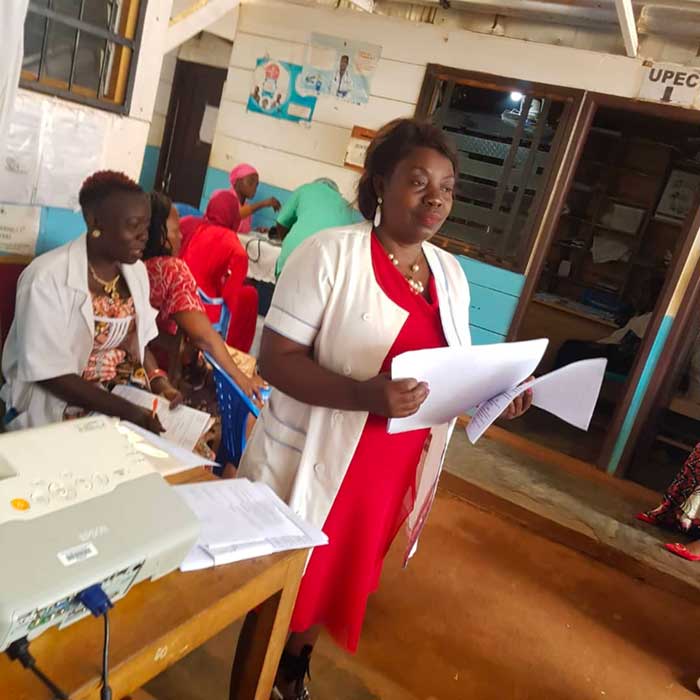
Brigitte Meugang's story was one of the most remarkable ones shared. Having learned about FGS, she realised that one of her relatives might be affected.
"Just two weeks after the FGS training, I remembered that I had a relative who had been suffering from non-stop bleeding for two years. I said to myself that perhaps she was suffering from FGS, and as most of the consultants did not yet know about this disease, it was very likely that we were missing the diagnosis, and that was the case."
Her relative had been badly affected and was anaemic. Yet no one could work out what the problem was.
"She visited all the major hospitals, even traditional healers, without follow-up. She had anti-anaemia treatment for life, because she was bleeding out. The whole family knew she could die at any moment."
As a last resort, her doctor recommended a hysterectomy, and the family began desperately trying to raise the necessary funds. Convinced her relative had FGS, Brigitte gave her praziquantel.
Have you read?
After treatment, Brigitte was very happy to see improvement. The bleeding started to decrease until it stopped entirely, which remains the case until the present day.
The case illustrates how little-known FGS is – and how much misery can be caused as a result. Many of the projects undertaken by participants in the programme focused on raising awareness among professional colleagues.
"My action plan was focused on creating awareness among hospital staff and community members. After the online training, I was fortunate to also participate in the first in-person training in Ghana and became a subject matter expert on FGS. So far, I have been able to train all community health nurses working under me to help create awareness in schools and the communities in which they serve."
– Rukaya Mumuni, Public health specialist working at the facility level for the Ministry of Health in Ga West District, Ghana
Others had undertaken community-based awareness-raising activities.
"Awareness-raising activities have been carried out in the area of responsibility of the Makacolibantang Health District. Twenty home visits were organised by community stakeholders through the 13 service points in the health district."
– Daouda Ndao, Biological engineer working for the Ministry of Health in Makacolibantang District, Senegal
Most importantly, these activities have led to more women getting the treatment they need.
"Since participating in the FGS training, I have trained the staff at my centre myself. To date, we have relieved six women who presented with persistent gynaecological manifestations. Taking praziquantel was a sort of magic bullet."
– Christel Aubrey Bitsi Dibakala, a medical doctor based in Bouenza, DRC.
Learn more about female genital schistosomiasis (FGS): https://www.learning.foundation/fgs
Teach to Reach 10 on 20–21 June 2024 will explore the experiences of health workers and communities in tackling the health consequences of climate change on health, with a focus on neglected tropical diseases (NTDs) in partnership with Uniting to Combat NTDs. Request your invitation at: https://www.learning.foundation/teachtoreach
Voir la séance en français de Teach to Reach 9 à propos de la Bilharziose génitale chez la femme https://youtu.be/YIIJOoTqdLQ
Watch the English-language Teach to Reach 9 session about female genital schistosomiasis (FGS) https://youtu.be/sODQdMsxhfI
